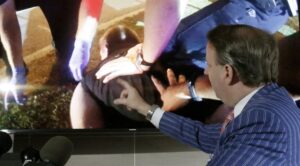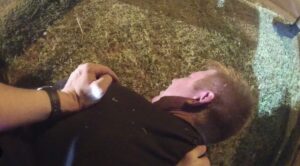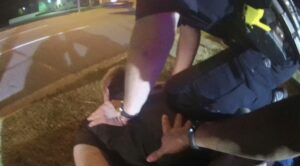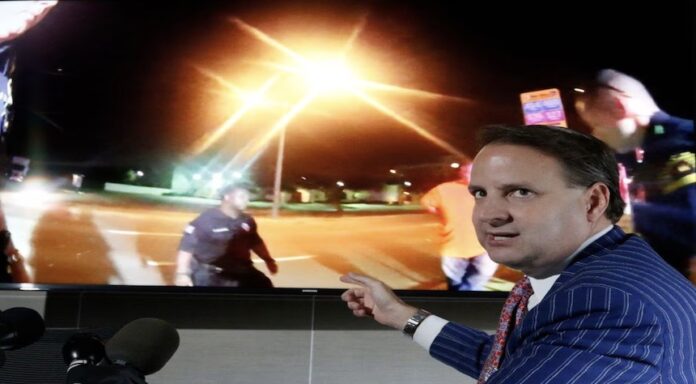The trial of the officers charged with the death of Tony Timpa, who died in Dallas in 2016, continues. On Thursday, two of the officers testified to the jury and claimed that they were not at fault for the death. The jury heard testimony from both the plaintiff and the defense’s scientific experts about the cause of Timpa’s death.
Dustin Dillard, a Dallas police officer, would be more assertive if he could relive the night that Tony Timpa died.
Dillard said that he didn’t do anything wrong but rather, paramedics failed to act quickly after the officer noticed something was wrong.
“I did not hurt Mr. Timpa,” Dillard testified. “I did not kill Mr. Timpa, I did nothing wrong.”

Dillard, now a detective for family violence, is accused in the lawsuit of using excessive and unreasonable force. The Timpa family also claims that three other officers did not intervene when Dillard kneeled on the 32-year-old’s back for almost 14 minutes, while he was experiencing a mental crisis. Timpa, 32, died while in police custody on Aug. 10, 2016
Dillard is represented by the city of Dallas, as are Raymond Dominguez Kevin Mansell Danny Vasquez. Mansell is the only one who has not left. Dillard, Mansell, and Vasquez were all indicted on misdemeanor charges of deadly conduct in 2017. However, Dallas County District Attorney John Creuzot dropped the case in 2017, after three medical examiners refused to testify that the officers had acted recklessly.
The first three days, beginning Monday were dominated by medical science as both sides argued whether or not the officers’ actions caused Timpa to die. The parties have also discussed police training for mental health calls, Timpa’s level of resistance, and his medical history.
Officer Dillard spoke to Timpa’s father, who was present in court, at one point.

Dillard looked at Vicki and Joe, Timpa’s parents when he was given the opportunity to speak with them on Thursday. He expressed his condolences, saying that he knew the pain of those seven years was “unimaginable” to Timpa’s parents.
Dillard stated, “I wanted to help him that night.”
“I was so sad that he had died, I know how it feels to be without a dad.” “I pray for Tony and both of you every day and will continue to do so.”
Kevin Mansell, a former police officer who was present on the scene in 2016 recounted events that day. He said that Timpa was also one of the main reasons he quit the police force.
Mansell said he saw Timpa being handcuffed on the side road by a security guard. When he returned, Timpa was rolled onto the road. Mansell and two security guards moved Timpa to a grassy place after they picked him up.

Mansell testified that he returned to the ambulance, and asked the paramedics for a list of Timpa’s medications. Mansell said that the paramedic looked at him and told him, “He’s dead.”
He recalled talking to Timpa’s mother when he learned of his death. He told her “something had happened to Tony”, and that he would call her again.
He claimed he cursed, “very loudly and very sternly” because he was upset. He testified that he thought Timpa went from rolling and kicking around to “completely opposite in minutes — and what on earth happened?”
He claimed that he had called Timpa’s father and instructed him to take his daughter to the hospital. Mansell claimed he did not tell the family that Timpa died, because the Fire Department does not pronounce death. The medical examiner’s offices do. He also said he was unaware of the results of the ongoing CPR.

Timpa began the incident by calling 911 and telling them he wasn’t armed, and that he hadn’t taken his schizophrenia and anxiety medication. The bodycam video shows officers pin him face down to the floor. Dillard kneeled on Timpa’s neck for 14 minutes. This, according to the medical examiner, led to Timpa’s death. The medical examiner ruled his death a homicide caused by “the toxic effect of cocaine and stress associated with physical confinement.”
Timpa’s family took seven years to overcome the roadblocks that slowed down their progress. Qualified immunity was one of the biggest roadblocks, as it protects government officials in many cases from civil liability. The doctrine was designed to stop frivolous suits, but it has been used by officers to avoid accountability for overstepping their boundaries.
Initially, the city government kept the footage of the bodycam under wraps. They also misled Timpa’s parents as to the circumstances surrounding his death. The footage was released eventually by court order. Nevertheless, courts determined that the officers involved were protected by qualified immunity. A later appeals court reversed this decision. It argued that the use of force against Timpa who was already restrained was “objectively reasonable.”




